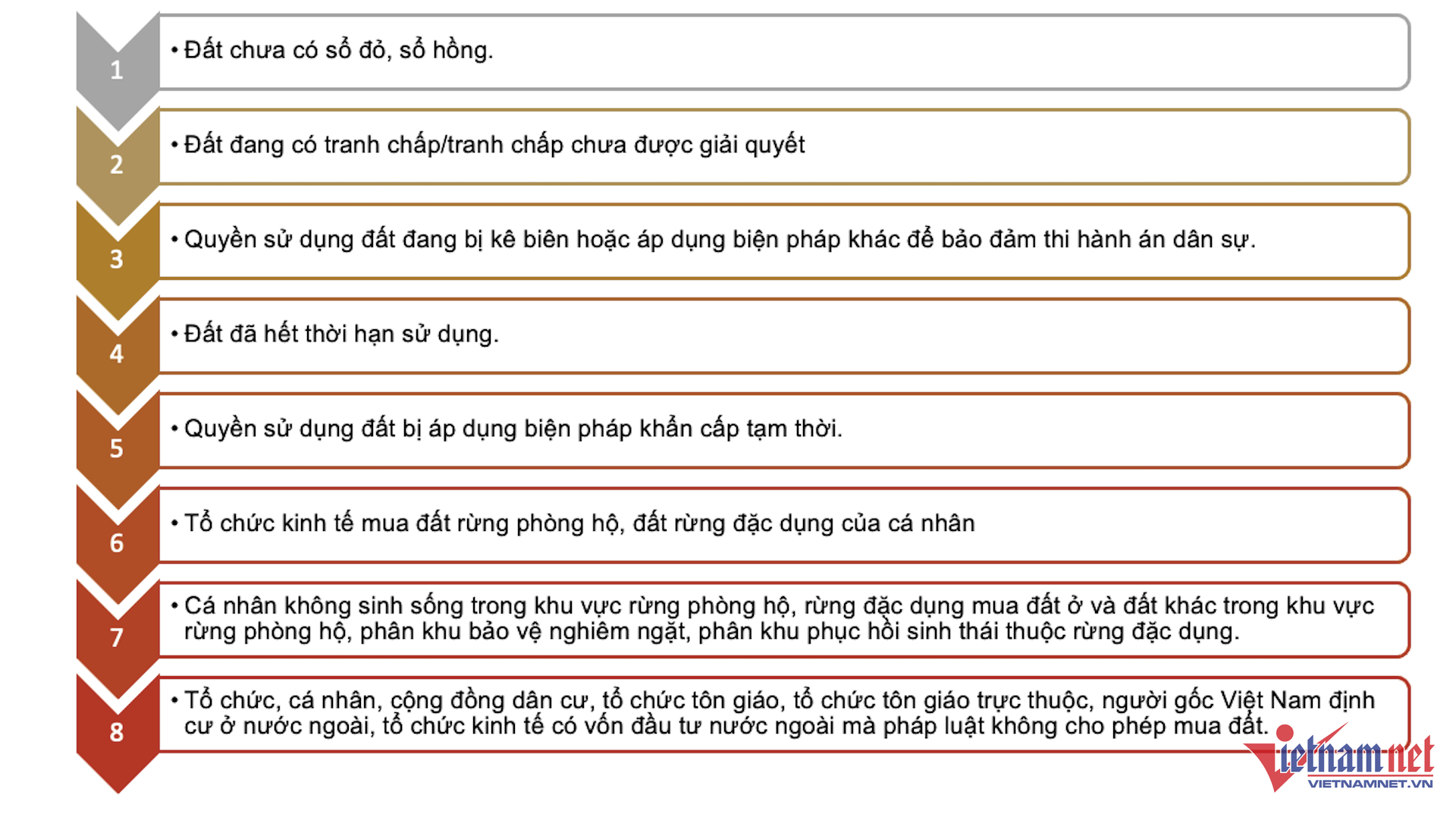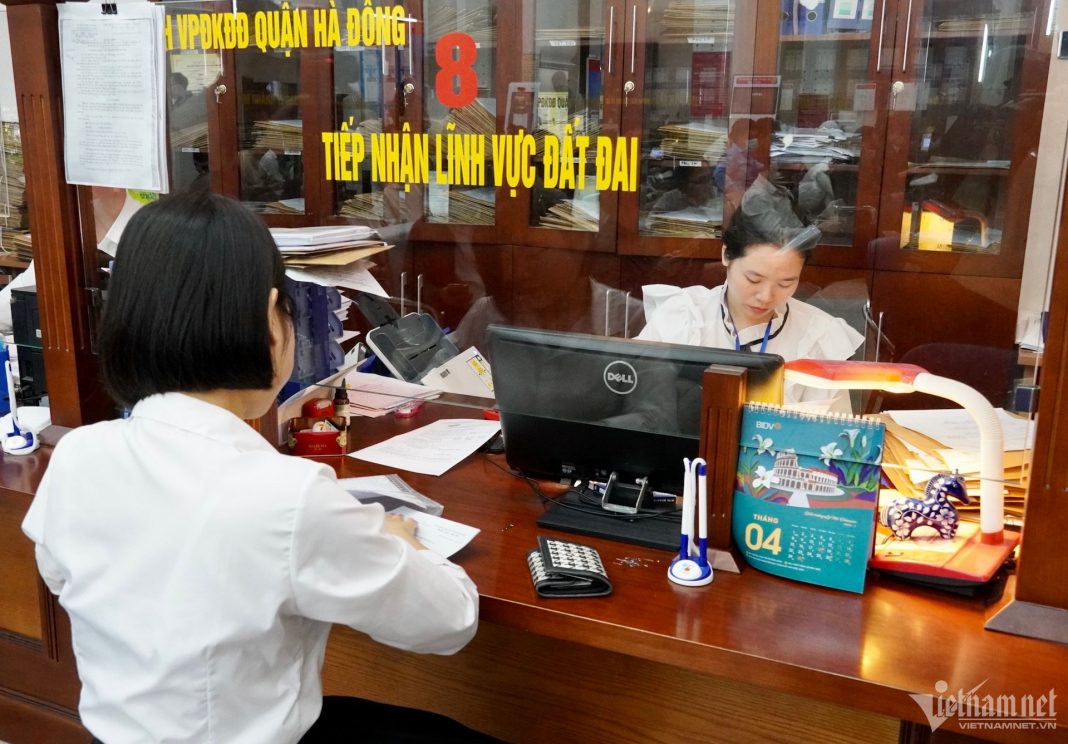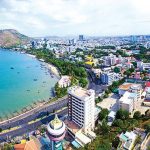“Transferring the red book” is a term used by Vietnamese citizens to refer to the procedure of registering changes in land-use rights when transferring, giving as a gift, or inheriting land-use rights and assets attached to the land.
When transferring the red book, both the seller and the buyer must meet certain conditions. There are some cases where the parties do not meet the legal requirements and, therefore, cannot complete the transfer process.
According to Sections 1 and 8 of Article 45 of the 2024 Land Law, the conditions for transferring the red book are specified as follows.
Conditions for the seller or donor
A land user is eligible to transfer the red book if they meet the following five conditions. First, they must possess a red book or a pink book, except in the following cases: inheritance of land-use rights; conversion of agricultural land during land consolidation and exchange; donation of land-use rights to the state or community; transfer of real estate projects to foreign-invested economic organizations in accordance with the law on real estate business; and households or individuals who meet the conditions for granting a red book or a pink book but have not been granted one and proceed to transfer, lease, sublease, or contribute land-use rights to implement projects.
 Vietnamese citizens conducting land registration procedures at the Ha Dong District Land Registration Office in Hanoi. Photo: Hong Khanh |
Second, the land must be free from disputes or, if there were disputes, they must have been resolved by a competent state agency, a court judgment or decision, or an arbitral award that has taken legal effect.
Third, the land-use rights must not be subject to seizure or other measures to ensure the enforcement of civil judgments.
Fourth, the land is within the term of land use.
Fifth, the land-use rights are not subject to temporary emergency measures.
Conditions for the buyer or recipient of the donation
The following cases specify who is not eligible to acquire land-use rights (buy land). First, economic organizations are not allowed to acquire land-use rights of protective forests and special-use forests from individuals, except when the land-use purpose is converted according to the approved land use planning and plan.
Second, individuals who do not live in the protective forest and special-use forest areas are not allowed to acquire land-use rights for residential land and other types of land within these areas, including the strict protection sub-zone and the ecological restoration sub-zone of the special-use forest.
Third, organizations, individuals, community groups, religious organizations, religious organizations directly under the Central Committee, overseas Vietnamese, and foreign-invested economic organizations that are not permitted by law to acquire land-use rights.
Cases where the red book cannot be transferred
Based on the above conditions for transferring the red book, if any of the following cases apply, the red book cannot be transferred as of August 1st.

Eight cases where the red book cannot be transferred according to the 2024 Land Law. Illustration: Hong Khanh |
Case 1: The land does not have a red book or a pink book.
Case 2: There is a dispute over the land, or the dispute has not been resolved by a competent state agency, a court judgment or decision, or an arbitral award that has taken legal effect.
Case 3: The land-use rights are subject to seizure or other measures to ensure the enforcement of civil judgments.
Case 4: The land is beyond the term of land use.
Case 5: The land-use rights are subject to temporary emergency measures.
Case 6: An economic organization purchases protective forest land or special-use forest land from an individual, except when the land-use purpose is converted according to the approved land use planning and plan.
Case 7: An individual who does not live in the protective forest and special-use forest areas purchases residential land or other types of land within these areas, including the strict protection sub-zone and the ecological restoration sub-zone.
Case 8: Organizations, individuals, community groups, religious organizations, religious organizations directly under the Central Committee, overseas Vietnamese, and foreign-invested economic organizations that are not permitted by law to purchase land.
By Hong Khanh
Upcoming Airport Not to Spark Land Rush in All Districts Near Ho Chi Minh City
Under the provisions of the 2023 Real Estate Business Law taking effect from January 1, 2025, there will be three areas in Ba Ria – Vung Tau that are not allowed to be divided into plots for sale.
















